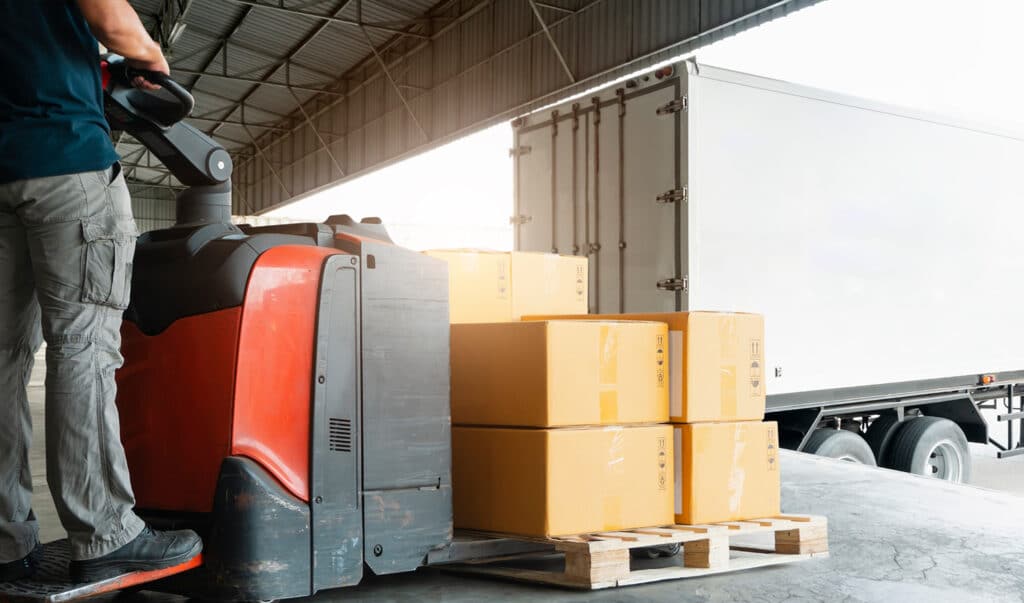What is Less Than Truckload Shipping?

Logistics, especially the trucking industry, are important to the US and global economy. For over 100 years, trucks have carried goods throughout America. Nearly 75% of goods transported are by truck, with a significant portion being Less Than Truckload (LTL) shipping. This blog will help businesses understand the benefits of Less Than Truckload (LTL) shipping and how it may be a beneficial logistic solution.
What is Less Than Truckload Shipping?
Less Than Truckload (LTL) is used to transport small freight that does not require a full truckload. These shipped goods are too large for a standard parcel carrier but not large enough for a Full Truckload (FTL). Businesses with cargo that is too large for parcel carriers but not large enough for full truckloads should choose LTL shipping.
An LTL shipment differs from an FTL shipment in that you pay only for the area your goods occupy instead of the entire truck space, regardless of your freight size. This differs from parcel shipping, which is typically limited by weight and size.
How does LTL Work?
Logistics, specifically LTL freight, is structured to be efficient and precise from every process step. LTL shipping involves four key stages, each with its unique function, ensuring your goods are handled optimally throughout their transit.
Pickup
Your freight is picked up from your location and transported to a consolidation center.
Sorting and Consolidation
At the consolidation center, your freight is sorted and combined with other shipments heading in the same direction.
Linehaul
The combined shipments are loaded onto a truck and transported to a regional distribution center.
Delivery
Your freight is delivered to its final destination.
Why LTL Logistics Matters?
Businesses can greatly benefit from shipping their goods through a logistics carrier that offers LTL services. Understanding these benefits can help a company reduce costs and allow for higher profit potential. Below are several advantages of choosing less than truckload shipping.
Cost-Effectiveness
LTL shipping is a great option for smaller to medium-sized businesses since costs are flexible. Shipment costs are calculated by the portion of the truck they occupy, unlike a standard truck trailer that charges for the entire trailer. Typically, this choice is ideal for freight weighing between 150 and 15,000 pounds.
Efficiency and Scalability
Efficiency is one of the most important factors in logistics. LTL shipping is fast and flexible. Another contributing factor to LTL’s efficiency is its scalability. As a merchant who ships products of varying sizes and weights, you can only pay for the space your goods occupy. This type of shipping offers more accommodation and cost savings.
Sustainability
An increasing number of consumers and businesses are concerned about sustainability. LTL shipping can help create a supply chain that reduces carbon emissions by combining shipments onto one truck. This consolidation lessens the transportation sector’s overall carbon footprint, supporting green initiatives and lessening the environmental impact of your business.
Technology and The Future of LTL
The LTL industry is not immune to technological advances. Technology, including AI and IoT, transforms LTL’s operations from route optimization to real-time tracking. AI can also be used for predictive analytics to proactively foresee transit delays and optimize routes. This means a shipment from New York to Chicago can now avoid potential delays caused by traffic or weather, saving time and costs while increasing customer satisfaction.
Future Trends and Predictions
Like other industries, logistics constantly evolves. As e-commerce demand increases, so do customer expectations. Customers want quicker and faster shipping at a low cost, so your shipping needs must adapt to these changes. Technology can help predict future trends like busier times of the year or resource allocation as demands decrease. Technology allows for flexibility, which helps businesses reduce operating costs.

Having LTL shipping as part of your logistics landscape cannot be overstated. It is a key solution for businesses looking to balance cost, efficiency, environmental sustainability, and adaptability. With the growing emphasis on logistics optimization, integrating LTL into your business strategy could be a game-changer.
Evaluate your existing logistics approach. Does LTL shipping feature in your operations? If it’s currently missing, now might be the ideal opportunity to consider how adopting or improving LTL practices could significantly boost your logistics efficiency. For more information on Less-Than- Truckload shipping, contact IFS Freight.

